French Protestantism Between Innovation and Integration
French Protestantism Between Innovation and Integration
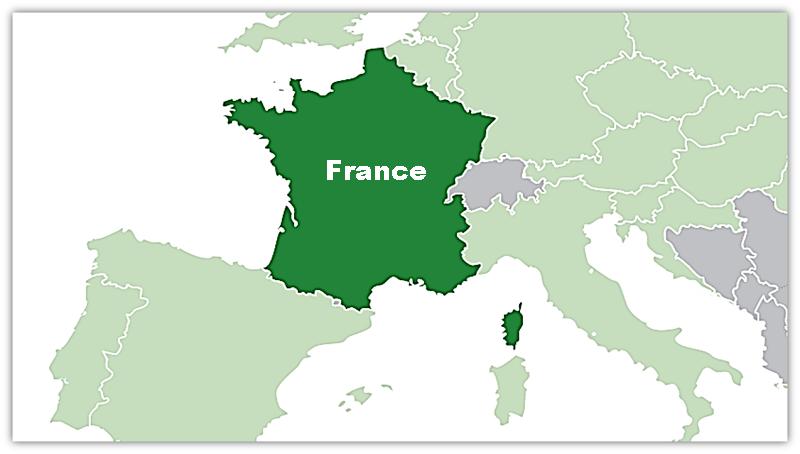
A century after the separation of Church and State in France is a good time to assess the successes and failures of the Protestant minority. If there are aspects of this question that pertain to the specific nature of the French situation, there are also issues that apply to religious minorities in general.
It is dangerous to generalise about a religious movement as multi-facetted as Protestantism in France. However, it can be said that the attitudes of this minority have been characterised at some times by optimistic innovation and progressive social action in which Protestantism collaborated with those who had no goals other than humanitarian ones. When it did so, its Protestant identity stood out. At other times and more recently, Protestantism manifested a desire for integration and collaboration with other Christians, particularly the Roman Catholic majority. When this was the case, it tended to lose its specific Protestant identity and also its social relevance.
These contrasting attitudes seem to have been triggered by the need for self-preservation. As a minority conscious of its vulnerability, it sought ways to protect itself from threats to its core values. For this reason it is not possible to describe the attitudes developing in French Protestantism toward the social context in a regular linear way. It is rather characterised by an oscillation between two opposing poles: the struggle for justice, social innovation and strong identity over against the desire for integration with the Christian majority and the danger of a loss of identity.
At different times the future of the Protestant minority in France has been considered optimistically or pessimistically. In terms of historical development it can be said that Protestants contributed in an important way to the separation of Church and State in 1905 and gained a good deal from it in terms of recognition and freedom. However, during the 20th century the values of society in general caught up with the Protestant values of liberty of conscience and freedom of thought and led, at the end of the century, to an identity crisis. Protestantism found it difficult to maintain its specific character, or to react in a coherent or an innovative way to a globally secularised society. The ecumenical venture was an alluring proposition, but it proved to be a dangerous course of action for a religious minority in a thoroughly secularised society.
A Protestant Identity⤒🔗
The Protestant minority has had a twofold problem to contend with, both religious and social, related to the rejection of the Reformation and the development of modernity in France.
As a religious minority in a predominantly Roman Catholic society Protestantism has suffered from being considered as deviant religion. Religion and Catholic were synonymous in the first instance in France; Protestantism was labelled la religion prétendument réformée. Later with the broadening of knowledge of religions, Christian and Catholic became synonymous. Protestantism suffered from the ambiguity of being a part of Christianity but not recognised by the Catholic Church, Christianity’s official representative. Protestantism was considered sectarian.
A similar ambiguity arose with regard to the development of secularism in France. Protestantism supported the separation of Church and State and played an important part in the growth of laicité,1 supporting the freedom and the autonomy of the State. However the allies of Protestantism in the combat against Church power, republican freethinkers, were enemies on the ideological level. The more Protestantism became permeable to free-thinking the more it risked losing its religious identity.2
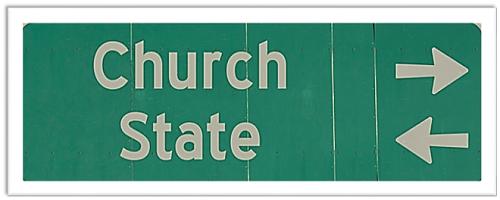
This position between the devil and the deep blue sea has never been an easy one. Ultimately Protestantism could neither look to the Church nor to progressive movements in society for its security. ‘Protestantism is the only group in France to be a religious minority, a de-sacralised religion and a Christian confession ... Over against the two Frances, Protestantism alone has affinities pointing in both directions.’3 Christian and laïque has been the Jekyll and Hyde identity of this minority in its search for survival.
When Protestants found their proportion with their numerical strength, having gained the victory and been assured of a space of liberty in the separation of Church and State, they lost their strategic position and became another religious party, and a small one at that. When they turned to the Catholic Church with a desire for ecumenical overtures in the second half of the century, they ran the risk of being smothered by the Catholic majority.
Too close an association with either the forces of social progress or with those of the official representative of Christianity in France has always weakened the Protestant minority. In the first instance, the distinctive Protestant stance has faded into a well-meaning humanism, and in the second place Protestantism as such has been threatened by common belief.
The problem of French Protestantism therefore is specifically defined with regard to a dominant, pervasive and often hostile religious majority. Over against Roman Catholicism, Protestantism has also been weakened by its own structures, characterised by a deficit in terms of institutionality, sacrality and universality.4 The positive relationships it has generally sustained with regard to the development of modernity, in contrast with Catholicism, have tended to weaken it rather than reaping dividends.5
Nor does this tendency show any sign of abating. Protestants tend to define spirituality in relation to Christ first of all, and their relation to the Church in terms of it, whereas Catholics do the opposite, with the relation to the Church being primary and mediatorial.6 In the present crisis of religion in the West that erodes institutional religion and authorities, individual spiritualities of all kinds flourish, the perennial nature of the Roman institution cannot be doubted. It retains its symbolical attraction as a factor in structuring religious aspirations, as was dramatically illustrated by the fervour surrounding the death of John Paul II.7 Religious practice continues to decline more rapidly in established Protestant churches than in the Roman communion.8 Protestantism suffers from its lack of institutional visibility and its divisiveness and has recently been overtaken by Islam, which has become the second major religious force in France: this is, for obvious reasons, something that retains everyone’s attention.
Historical Considerations←⤒🔗
Some historical illustrations can be given about this minority that is both French and Protestant. The first synod of the French Reformed churches in 1559 adopted the La Rochelle Confession, penned largely by Calvin, in remarkable circumstances. The Synod lasted four days, even though there were gallows and pyres in every part of the town. But the secret of the meeting was so closely guarded that it was not discovered. Seventy congregations had been summoned to send delegates, but less than thirty were represented. The Gallic Confession was born in a situation that was prophetic of the tribulations that the Reformed faith would know in France, in one form or another, over the centuries, down to the present.
Forty years later, the Arminian crisis having risen in the Reformed churches, an assembly of European Reformed churches was summoned to Dordrecht in Holland in 1618-1619 to deal with the problem. The French were invited, but their delegates were forbidden to attend by Louis XIII. Engravings from the period show the empty French seats in the synod. When their next synod met at Alès in the Cévennes in October 1620, the five articles or Canons of Dordrecht were added to the La Rochelle Confession as the secondary norm of the French Reformed Churches.
Throughout the 17th and 18th centuries, the Protestant faith suffered a two-pronged assault. Between 1630 and 1792 only three monarchs reigned in France, fostering royal absolutism, exemplified by Louis XIV, who abolished the civil liberties of Protestants. The French monarchy would not accept that France could be unified with a non-Catholic minority within its boundaries. That the result was persecution, deportation or voluntary exile for many French Protestants is well known. At the time of the Revolution there were only around 100 000 Protestants in France and 80 pastors, whereas at the start of the 17th century there had been 700 pastors.9
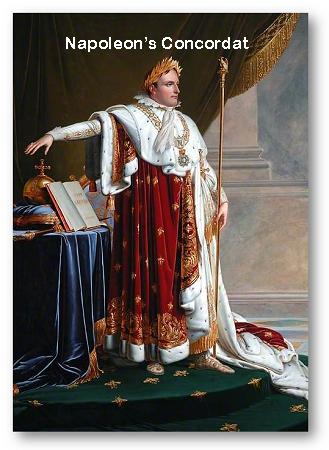
During the century preceding the Revolution the cardinal points of the faith were eroded by the rise of enlightenment philosophy in France. Even though Protestants were granted freedom of conscience and worship at the time of Revolution and their pastors were paid as civil servants from the time of Napoleon’s Concordat, the churches had become mere husks and the faith of the fathers’ had become, in many cases, a modified form of deism.
During the 19th entury, Protestants in France, contrary to all expectations, knew a period of great expansion. Their new-found liberty was the occasion for growth in the establishment of new churches, in some cases even whole villages being converted.10 Missions developed in both the evangelistic and social sense. There was an upward movement of Protestants in the economic and academic fields. By the end of the century Protestantism had become a vigorous minority, able to use its influence with other groups in social development and political policy. Sometimes this led to opposition, such as in the “white terror” in 1814 or later in the century in “anti-Protestant” propaganda, which sometimes accused Protestantism, along with Jews and Free masons, of being an éminence grise in French society.11
To sum up the result of over two centuries of intensive persecution: Protestantism survived the assaults of Catholicism and was even able to be a magnetic attraction in the 19th century, but it had lost its theology in the process. Since the time of Calvin and down to the present, no major systematic theology has come from the pen of a French theologian!
Protestantism, Innovation and Progress←⤒🔗
- Over against reactionary Catholicism, Protestantism gave the impression of being open to progress and renewal in society: ‘religion that corresponded to the Revolution.’12 Contrary to elsewhere in Europe, where the Revolution was often considered to be an anti-Christian phenomenon, as is generally also the case among French Roman Catholic historians, Protestant historians in France have considered it as anti-Catholic.
- The idea of an “anti-revolutionary” theory or party as advocated by Groen van Prinsterer and his successors in Holland is quite incomprehensible to someone from the French Protestant minority. 1789 can only be seen in one light for most French Protestants: as a providential opportunity for freedom from bondage, social recognition and liberty of worship and action in society. The Revolution was seen as a new exodus for the persecuted people of God. It is not surprising that the Protestant minority took sides and made alliances with the cause of freedom and pursued policies to safeguard and increase the scope of their liberty.13
- Catholic intolerance had pushed French Protestantism into the camp of the freethinkers: throughout the 19th century Protestants embraced with enthusiasm the possibilities opened up by this turn of events. Toward the end of the century the climax of this development was reached in the early years of the Third Republic by the presence of a majority of Protestant ministers in the cabinet formed by W.H. Waddington (1879). The utopian vision of the minority throughout this period was to protestantise France, a dream that only faded in the early years of the 20th century.
- The ambiguity of this situation was twofold. On the one hand, Protestants had to show themselves to be French patriots while at the same time being different from the population in general. This was a delicate operation, since the vigour and development of Protestantism in missions and social work depended very often on outside help in terms of finance or personnel from Anglo-Saxon Europe or from Switzerland. The shadow of “perfidious Albion” or Prussia seemed to lurk behind its good intentions.
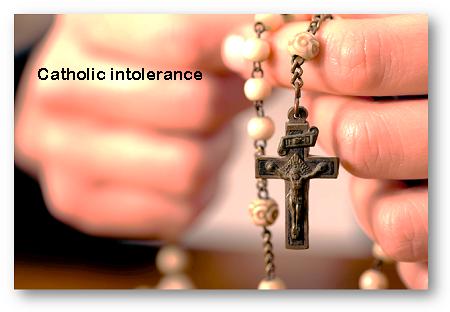
- On the other hand, in the French context, to show themselves bona fide, Protestants embraced the global ideas of French republicanism. ‘The more Protestants desired to bring the gospel to their countrymen and act with religious enthusiasm, the more they were led to make alliance with those who ideologically were not Christians or who showed it but little.’14 This was a paradoxical situation indeed requiring all the skill of a tightrope walker. The joys of being a religious minority!
- The answer to this double conundrum was to kill two birds with one stone. It was an ingenious policy that was the guideline for French Protestantism, even if it was one born of necessity and, as subsequent history shows, a dangerous one. ‘For militant Protestants, Protestantism was at the same time the solution to the religious problems of France and an active factor for social change.’15
- So in the course of a century from being stigmatised and excluded, Protestants became an active force in French society and in the advent of modernity crystallised in the separation of Church and State in 1905. Protestantism acquired social legitimacy. This was symbolised by the reintegration of a minority faith into the history of France. On the one hand Protestants considered the historical developments in a positive way; they saw their role in it as being that of a religion adapted to the “modern world”, contributing to political freedom and democracy. On the other hand the minority was often seen as being, in the words of Jules Ferry, one of the founders of the Third Republic in 1872, ‘a powerful friend, a necessary ally’ for the anti-Catholic forces of progress.16
- Protestantism was therefore closely allied with the forces of progress and republicanism. The values of Protestantism were even thought to be necessary to the maintenance of republicanism. Atheism carries with it the danger of a moral vacuum and with it the temptation of a return to Catholic clericalism. As the religion corresponding to the spirit of 1789, Protestantism is a convenient halfway house between the radically opposed forces of atheism and clericalism. Religion was necessary for the social good. Victor Hugo claimed that the disappearance of religion would lead to an absence of morals, a lack of a sense of human dignity and would even take away the purpose of life itself. But the excesses of clericalism had to be avoided at all cost.17
- So it came to be considered that atheism and clericalism feed each other mutually. If society needs a religion, Protestantism is the one best suited to progress and a viable third way between the extremes of moral nihilism and intolerance. The minority ‘secularised in order to protestantise.’18 From 1870 onwards, fuelled by the dream of a Protestant France the Protestant party was, at least in its leadership, fully engaged in the process of the secularizing of the institutions of the country, and played a vital role in the creation of modern France, not only in the sphere of the separation of Church and State, but also in the fields of education, one of the battleships of the Republic, medicine and the struggle against poverty.
- Jean Baubérot, a leading French Protestant historian and sociologist, has described this process as a two-tiered development in the secularisation of French institutions at the turn of the last century, which describes theoretically a progressive marginalisation of religion in public life. Protestants were actors in this overall development that ended in a social truce (le pacte laïque) between the State and religious groups and between the Catholic majority and minority groups. It was generally considered a satisfactory outcome that would guarantee freedom and tolerance of personal faiths in society as a whole, without deciding on the question of their legitimacy.19
- The first stage of secularisation took place throughout the period of the Concordat, during the 19th century. Religion was no longer coextensive with society as a whole but was generally recognised as being one of the institutional features that contributed to it. It was one of the basic human needs and the State secured the means whereby citizens could find that need satisfied. The State guaranteed freedom of worship without giving recognition to any one religious option.
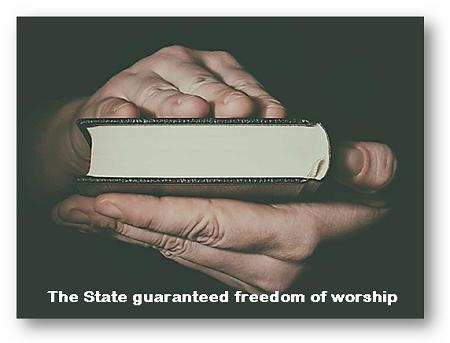
- The second tier of secularisation corresponds to the developments of the Third Republic during the last thirty years of the century. It took the privatisation of religion further and found expression in the law concerning the separation of Church and State. Religion was no longer considered as having a public function or as contributing to the social fabric at all. It is socially marginalised and became a private affair regulated by public law. The state occupied a position of neutrality with regard to religious factors and guarantees freedom for various forms of religious practice as long as they remain within the law. The position of the State was one of neutrality and religion is not to enter the public arena or function in public institutions such as schools or hospitals.
- Protestantism became socially viable as one of the contributing factors to the development and victory of modernity in France. However, in terms of its implications for Protestantism as a religious belief, its results are more debatable. Its values were no longer thought of in terms of the Reformed faith, or even of the Christian gospel, the transcendence of God and the incarnation. Republican values and Protestant values tended to coalesce. Protestant Christianity was rationalised and the Revolution was spiritualised; like ebony and ivory the two lived together in perfect harmony.20
- In spite of evangelical revivals during the 19th century and re-editions of Calvin by the Société de Toulouse that led up to the magnificent work of Émile Doumergue on the Genevan reformer, the tenor of Protestantism was generally ethical, particularly among the cultured elite. Protestantism was identified with the primacy of the individual conscience and the freedom of examination. The material principle of the Reformed faith was not considered in conjunction with its formal principle. Protestants did not hesitate to point out the proximity of liberty, equality and fraternity to the Pauline triad of faith, hope and charity. This paved the way for a further humanisation of Protestant belief and the reception of the ethical religion of the old liberalism, introduced in France in the last quarter of the century by Auguste Sabatier and others.
- At the end of the 19th century, French Protestantism had an evangelical heart but a humanistic head in terms of its belief system and its constituency. The minority had shared its ethos with the majority in the process of secularisation but was to pay the price for its success in the years to come.
- After the separation of Church and State in 1905, the republican ideals of the rights of man and the citizen, freedom of conscience and tolerance became the new values surrounded by an aura of sanctity. The State became a new guardian of things sacred in place of the Church, and proposed ethical standards (la morale laïque) for all its citizens. The State was the sovereign of the new secular covenant and the public school was the place of catechism for the young. Protestantism had lost its cutting edge, as its social values were indistinguishable from those that regulated public life in general.
- How could the specific character of Protestantism be restored, maintained and promoted in this situation? French Protestantism, as is the case of other Protestantisms active in the development of the modern ethos, seems to have become the victim of its own success story.
By a strange twist of fate Catholicism seems to have benefited more than Protestantism, relatively speaking, from the separation of Church and State. Protestantism suffered from its isolation as a small religious minority over against an imposing mass of Catholics.21 It lost out by becoming just another minority in society with no specific role to play in the political process.
Catholicism on the other hand, in spite of the privatisation of religion, could claim to be the major religious institution in society, the first partner in any dialogue with the State. Even down to the present it has not abandoned the dream of re-christianising France, the “eldest daughter of the church”. John Paul II could still exhort a rally of young people in Paris in 1980: ‘France, what have you done with your baptism?’
Integration in this new secularised situation led to an imperceptible but real loss of identity for Protestantism throughout the 20th century as it strove to affirm its Christian identity. This symbolic deficit in identity relates to three specific issues: ecumenism, the interpretation of what the Reformation actually was and internal tensions.
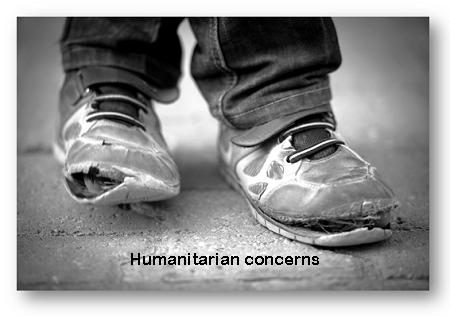
Firstly, ecumenism developed in France largely because of external influences and contacts. Before the Great War it developed in the Christian social movement and continued through the influence of Nathan Soderblom and Life and Work. Social action to alleviate poverty was a common platform that could be shared by Protestants and Catholics alike and increase the credibility of Christianity with ‘hommes de bonne volonté’ with humanitarian concerns.22
Karl Barth←⤒🔗
Another major influence in ecumenism was the impact of the theology of Karl Barth providing a common ground for ecumenical discussion for both confessions after the World War II. A dominant theology belonging to a church that was an ultra minority in France lent Protestants credibility and made them worthy partners in dialogue.23 This permitted them to emerge from religious isolation and gain a certain recognition with majority Christianity. The flagship of Protestantism, the Église Réformée de France, became dominantly Barthian in the 1940s and remained so until the 1970s when political theology had its day.24 It was the major partner in dialogue with Catholics, exemplified by the joint discussions held by the Groupe des Dombes or the early Taizé movement.
‘Ecumenism appears to be one functional form of religion in a secularised society where religion is privatised.’25 In the French churches the ecumenical movement was welcomed with enthusiasm as a demonstration of the viability of Christian belief and its ability to adapt to the modern world. It was considered to have considerable apologetic value against the argument that religion is always divisive and intolerant. It was aimed less at reunion than at communion and religious rearmament in the context of a society becoming ever more irreligious.26 To be ecumenically involved became for the cultured classes a proof of Christian authenticity. Because of numerical factors its impact was much greater on Protestantism than on Catholicism where it retained marginal importance. Catholics found religious renewal after Vatican II through Bible-reading or the charismatic movement.
The ecumenical movement was a real danger for the existence of French Protestantism.27 It became fashionable to be a “Christian” rather than primarily a member of a confession, a slippery slope for Protestant identity in France, where “Christian” always means “Catholic”. Moreover, the combined factors of the increasing problem of the religious socialisation of the younger generations after 1968 and the continual haemorrhage from the ranks of the minority through mixed marriages lead to a weakening of the mainline Protestant denominations that has not abated to the present. For these churches it was a wonderful window-dressing but tended to be counterproductive in reducing the stock in shop. Once again the result is paradoxical, as Jean Baubérot states rather pessimistically: ‘Ecumenism was a guarantee for French Protestantism. At the same time, as it proposes the hope of “one church” and as the standing of the two confessions is very unequal, in the long run it could mean the end of Protestantism in France.’28 To claim to transmit the “gospel” but not Protestantism with it may be understandable from the point of view of Christian belief, but it is sociologically suicidal.29
Secondly, closely related to the question of ecumenism was the problem for Protestants of what to make of the 16th century Reformation. The conjunction of the spread of secularisation and the success of the ecumenical movement made assessing the Reformation a neuralgic point in the crisis of modern Protestant identity. Three possible interpretations seemed to be current in the post-Vatican II period.30
The liberal interpretation said that the Reformation was the precursor of modern freedom of thought. Freedom of the individual conscience from the Church institution is the first step on the road to free-thinking and the liberty of the individual. This anti-authoritarian interpretation of the Reformation was highly plausible in post-1968 France. Protestant identity is defined in terms of “gospel and liberty”.
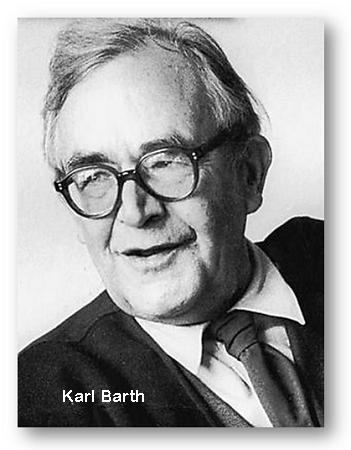
The ecumenically oriented view, probably the most popular in Protestant circles, was that the Reformation was a reorientation of Christianity and that the separation had been a necessary evil. Its result was positive as a challenge to a monolithic institution and as a recovery of the fundamental nature of the gospel. Now the ball is in the court of ecumenism to pursue the fundamental task of the Reformation in renewing the whole Church in a biblical way. Protestant identity is defined in terms of “biblical renewal on the road to unity”. The Biblical theology movement that enjoyed great popularity in both confessions from the 1930s to the ‘80s, later criticised by James Barr, was a great incentive in this perspective.
Unfortunate Mistake←⤒🔗
Finally there was the view traditionally adopted by Catholic historians that the Reformation was an unfortunate mistake, a parenthesis in the history of Christianity needing to be closed as soon as possible. Right-wing Protestants tended to pick this view up through their political associations. A small minority adopted it because of bad conscience at being divisive Protestants. Protestant identity is not something to be proud of, but “a cross to bear on the road to unity”. The final historical task to be accomplished by Protestantism is to heal the wounds and reunite with L’Eglise de France, as Cardinal Lustiger called it, making a new and renewed Church.
Uncertainty related to the meaning of the Reformation itself might seem normal in a pluralistic society and is typical of the confessional errance of late modernity. However it shows that if Protestants know what street they live on, they have forgotten the number of their abode.
Thirdly, the ability of Protestantism to adapt to the new situation of an increasingly secularised society was paradoxically a threat to its identity throughout the 20th century, but never more so than in the context of the hyper-individuality of post-modernity. If ecumenism had served to soften up convictions about the “rightness” of the Protestant way, extreme relativism did the rest. The reasons for former antagonisms became vague and truth claims lost their relevance in a situation where ‘it was henceforth possible to live without specific goals or meanings, in sequential “flashes” and that is something new.’31
In this situation relativism and pluralism tended to highlight the tension that has existed perennially within Protestantism between orthodoxy and liberalism. If the first theological trend held pride of place through most of the last century because of the impact of neo-orthodoxy, liberalism never disappeared and it re-emerged in the last quarter of the century as the methods of theology were increasingly influenced by the humanities. Steve Bruce has pointed out the fact that non-believers in Christianity do not convert to liberalism. Its recruits are drawn from more orthodox groups who experience the lack of plausibility between what they believe and the dominant ideology of society.32 The position of liberalism is “parasitic”. Its mediating stance between faith and modernity and its desire to do justice to both also means it is a halfway house between Protestant practice and a secularised way of living. The more liberalism reaches a synthesis in reconciling faith and current ideologies the more it has an erosive effect on Protestantism. The many recent and popular “theologies of the genitive” have similar consequences. The social effects of liberalism are no doubt very different from what its adherents honestly intended.
This same rule may well hold good in so far as the numerical decline in Protestant religious practice is concerned. The progressive and innovative contributions of Protestantism in France led to a new social order that seemed to be favourable to its freedom and provide conditions in which it could prosper. By adapting to this new situation and seeking to renew Protestant identity in ecumenical bonding, to make something of the Reformation in the present and to adapt to postmodern individualism, main-line Protestantism for all its honourable intentions, found itself in an increasingly fragile position and in numerical decline. ‘It is not by chance that the Protestantism that is declining numerically is Protestantism that has interiorised secularism and ecumenism.’33
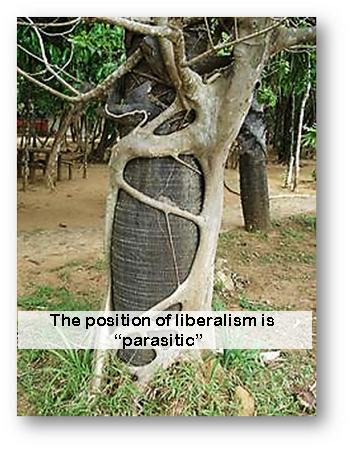
Protestants in France had been in the vanguard of innovation and progress but their integration in the resultant society threatened the existence they had fought so hard to preserve. It is cold comfort to interpret this as the ultimate success because of the “protestantisation” of French society.
Conclusion←⤒🔗
Within French Protestantism at the beginning of the 21st century the cards seem to being re-dealt within the minority and the results of this movement are by no means certain.
Statistics indicate that if there were 765 Evangelical communities in France in 1970, today there are almost 1 900. There are almost 1 600 main-line Lutheran and Reformed churches.34 It is obvious which group has the social clout and which has the capacity for evangelising a de-christianised France. Many of the Evangelical groups in the suburbs around the large cities are made up of a high proportion of immigrant “people groups” which means that Protestantism in the France of the future will be quite different from Protestantisme à la française. The neo-Pentecostal character of these evangelical groups may well appear uncultivated to sociological Protestants, but the directness of the message, the community spirit and the ability to communicate it in their surroundings are stimulants to growth. If the current trend continues, the face of Protestantism in France could well be very different and it remains to be seen what the result of the cross- pollenisation between the established and new groups will be.
We have sought to show that when the Protestant minority in France has been socially involved, innovative and progressive it has tended to lose its Christian heart. When it has sought integration and ways of Christian witness with “Catholic France” it has lost its Protestant character.
The question remaining at the end of this study is: how can a religious minority act in such a way as to be socially involved without losing its specific Christian character? How can such a minority articulate its message in a way that is universal, without losing its religious particularity?
If in France the door has been firmly and finally shut to the utopia of “Christian France”35 what examples in the Christian tradition can provide a fruitful starting point in looking for answers?

Add new comment